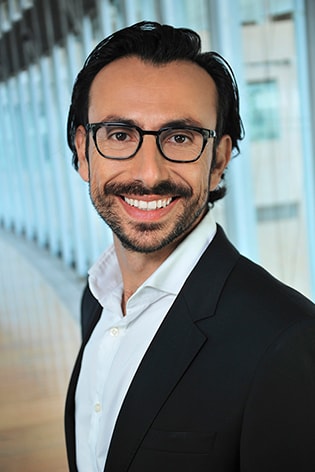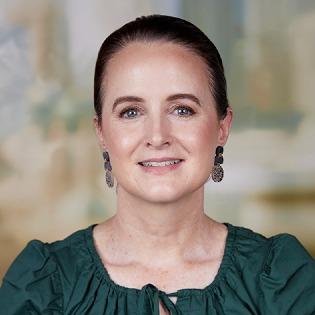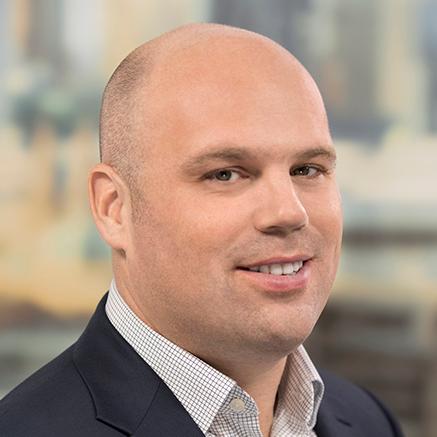PwC’s 28th Annual Global CEO Survey – Australian private business insights reveals, for the first time, the priorities and challenges of Australia’s private CEOs. It spotlights two defining forces driving business reinvention action: technological disruption and climate change. Some are seizing these opportunities, capturing new value and growth, yet many others are moving slowly.
Message from Jason Habak, Private National Leader, PwC Australia
Australia’s private CEOs are confident about the future – over 70% believe their business will last another decade on its current path. This stands out sharply from global results. Is this confidence misplaced?
Welcome to our inaugural PwC 28th Annual Global CEO Survey – Australian private business insights. This report takes a deep dive into the views of Australia’s private CEOs, as part of this annual global survey of over 4,700 leading CEOs representing every region in the world’s economy. This year, nearly 60% of the 116 Australian CEOs surveyed were from private businesses, offering valuable insights into their priorities and challenges, alongside 2,919 private CEOs globally.

Explore the findings
Five ways private leaders can create value
Our findings point to five key actions to drive ongoing reinvention:
Business Outlook: Converging forces shaping the future of private business
Optimism about growth prospects has increased globally among CEOs, including for private CEOs. However, in Australia, confidence in local growth remains comparatively lower, with 46% of private CEOs expressing optimism, compared to 59% of their global peers. This more cautious outlook may reflect that Australia remains close to the peak of its monetary policy stance relative to other advanced economies.
High interest rates and the lasting effects of pandemic-fuelled inflation have weighed heavily on the private sector and households. Indeed, the difference is pronounced – a 22% point difference between global private and local private CEOs who expect to see an improvement in their territory’s GDP.
The higher level of optimism for global growth is not yet translating to an uplift in offshore investments. One in four Australian private CEOs intend to allocate capital expenditure to offshore operations compared to around one in two global private CEOs. Australian private CEOs are more likely to pursue inorganic growth instead, with acquisition intentions strong.
Despite Australia’s tight labour market many CEOs are planning to increase headcount in the year ahead. Australia’s private CEOs are slightly ahead of their global private counterparts (49% vs 44%).
Converging forces shaping the future of private business
The last few decades have brought profound change. Deep global trends – from the rise of digital technology to economic volatility and climate change – have reshaped businesses worldwide. Since 2000, 52% of Fortune 500 companies have either gone bankrupt, been acquired, or ceased to exist.1 The average lifespan of a Fortune 500 company has shrunk from 37 years in 1980 to just 17 years today. Longevity is no longer guaranteed by size, tenure or past success.
As these forces converge and intensify, CEOs everywhere are being pushed to rethink their business models. While private businesses operating in Australia may not face economic challenges as severe as their global peers, leaders are navigating generational shifts in climate and artificial intelligence (AI) – both as risks and opportunities.

“CEOs in Australia run the risk of succumbing to the “success curse”. In the past, it’s been possible to sustain high profit margins without vast transformation thanks to a less competitive, more concentrated marketplace, as well as a relatively resilient economy. But Australia’s CEOs can’t afford to be complacent – don’t let past successes stifle future innovation.”
Simon Herrmann, Partner, Advisory, Australia Leader in Business Model Reinvention, PwC Australia
Perceived threats to growth
Inflation is cited as the top threat by Australia’s private CEOs, with 25% feeling highly or extremely exposed – matching global private CEOs. Other top concerns include macroeconomic volatility, cyber risks and the availability of workers with key skills.
In our experience, wage competitiveness can also be a threat. Many private businesses struggle to compete with the salary packages offered by large corporations.
How exposed do you believe your company will be to the following key threats in the next 12 months?
Ramping up reinvention
Private CEOs express significant confidence in their company’s viability
If your company continues running on its current path, for how long do you think your business will be economically viable?
Similar to other CEOs in Australia, private businesses express considerable confidence that their organisation will still be in business in ten years time if it continues running on its current path (74% and 71%). Both these figures are notably higher than with global CEOs and global private peers (55% and 54%).
This contrast could suggest that Australia’s leaders believe their business is protected from the impact of converging megatrends currently causing global CEOs concern. This confidence, stemming from years of favourable conditions, might now be misplaced.

“While there is nothing wrong with confidence, we caution against over confidence because we can see that the world is changing at an accelerating pace. CEOs need to create that space to think about where the growth of the future is coming from and then allocate capital and talent against those growth areas.”
Simon Herrmann, Partner, Advisory, Australia Leader in Business Model Reinvention, PwC Australia
Private CEOs are taking reinvention actions, but few are making bold moves
While some private CEOs recognise the need for reinvention, few have made bold moves over the last five years.
To what extent has your company taken the following actions in the last five years?
Reinvention is not optional. We surveyed chief executives in every region of the world’s economy and what became apparent was a strong association between the number of reinvention actions companies have taken in the past five years and the profit margins they achieved.
53% of private CEOs in Australia plan to make an acquisition within the next three years.
With organic growth proving more challenging in the current economic climate, it seems that many private businesses are turning to mergers and acquisitions (M&A) as a vital source of growth. Over half of private CEOs plan to make an acquisition within the next three years. This may be partly driven by the growing prevalence of private capital in these transactions.
Private companies backed by private equity, in particular, tend to pursue more ambitious growth strategies – using M&A to quickly access new customers, markets or products.
Expanding beyond company walls – and across industry boundaries – is becoming a key strategy for reinvention and value creation.

“Think about your capital allocation year to year and how much of that are you reinvesting in future growth priorities. Dynamic companies have a higher rate of capital reallocation from last year’s business to the future business.”
Chelsie Harris, Partner, Advisory, Private Deals Partner, Melbourne, PwC Australia
AI: a catalyst for value creation
Private CEOs see GenAI as a driver of efficiency and future profitability, but adoption hurdles remain
It’s difficult to overstate the impact of technology, including AI, as a catalyst for innovation and value creation. Future profit expectations are on par with global private and global CEOs (41% vs 49%).
Australian private CEOs are also generally aligned with global counterparts in integrating AI – to a large/very large extent – into business processes (41%), technology platforms (41%), workforce and skills (29%) and new products/services (24%) over the next three years. However, only a third have a high degree of trust in AI, and they report multiple barriers to greater adoption.
Which of the following factors, if any, have inhibited your company’s adoption of AI in the last 12 months?
Australia’s private business CEOs cite internal skills (47%) and technology/data platforms (37%) as the biggest barriers to AI adoption.
There is a real shortage of skills in Australia’s labour market, particularly for GenAI expertise, but this need not hold private businesses back. Digital-savvy NextGen family members can drive adoption, collaborating with tech-savvy employees who can act as internal champions. Starting the GenAI journey can be relatively inexpensive by experimenting with tools like ChatGPT Enterprise, Salesforce’s Einstein and Microsoft’s Copilot, along with other GenAI integrated vendor products. For those looking to scale, a short proof-of-concept with a vendor can help reduce risk and build confidence.

“Private companies, being more agile and less bureaucratic, can swiftly adapt and take pragmatic risks. This agility enables them to capitalise on vendor investments in GenAI applications – such as Einstein and Copilot – and use tools like ChatGPT Enterprise, driving rapid adoption and maximising ROI.”
Charmaine Chalmers, Partner, Advisory, CIO Advisory, Brisbane, PwC Australia
AI is a major disruptor in the private market – adoption is no longer optional for those wanting to remain competitive, or grow.
Climate change: unlocking value in sustainability
Climate investment is paying off, with private businesses leading the way in Australia
It’s clear that when climate is treated as a growth opportunity rather than simply a compliance exercise, new revenue streams can be unlocked and opportunities forged.
Private businesses in Australia are leading the pack, outpacing listed peers when it comes to returns from climate-related investment (22% versus 17%). This advantage may stem from their unique ability to pivot at speed, quickly seizing sustainability opportunities as first-movers. This agility offers a promising path forward, positioning them to close the gap and match or even surpass global peers (at 30%) over time.

“Sustainability is creating new markets and opportunities for private businesses, where they are not only addressing their issues and finding new ways of doing things, but also creating new opportunities through their strategy, data, products and services. If you don’t get on board, you will miss the opportunity to capitalise.”
Jon Chadwick, Partner, Advisory, Climate Lead & Global PwC Energy Transition Lead, Melbourne, PwC Australia
Recent Harvard Business School research found faster revenue growth among firms that are transitioning their product portfolio toward climate solutions. Our report Hidden Opportunities: Creating value through climate action, highlights four sources of untapped potential for revenue growth – including sustainability reporting.
Sustainability reporting – now mandated in Australia and applicable for large private businesses that meet certain thresholds – has been a strong focus for many private businesses over this last year. Forward-looking CEOs use climate reporting to spur innovation and open up new market opportunities, build trust and engage new customers, and attract favourable finance.

“Forward-looking CEOs are shifting from a ‘compliance mindset’ to focusing on growth potential instead.”
Caroline Mara, Partner, Assurance, Sustainability Reporting and Assurance Leader, Newcastle, PwC Australia
By investing in sustainability, businesses are not only protecting the planet but creating long-term value for the company and its stakeholders.
Looking ahead
Australian private businesses must stay alert to the risks of complacency. While confidence in the future is encouraging, the accelerating pace of change requires a deliberate approach to growth and innovation. Companies need to carve out space to explore emerging opportunities and re-allocate resources, both capital and talent, toward future growth areas. By remaining adaptable and continuously evolving, private businesses can navigate disruptions and build long-term resilience.
PwC’s 28th Annual Global CEO Survey – Australian private insights
Reinvention on the edge of tomorrow
Contributors
Jason Habak
Private Leader, PwC Australia
Nicholas James
Partner, Assurance, Private Markets Lead, PwC Australia
Partner, Advisory and Chief Economist, PwC Australia
Simon Herrmann
Partner, Advisory, Australia Leader in Business Model Reinvention, PwC Australia
Chelsie Harris
Partner, Advisory, Private Deals Partner, PwC Australia
Charmaine Chalmers
Partner, Advisory, CIO Advisory, PwC Australia
Partner, Advisory, Climate Lead & Global PwC Energy Transition Lead, PwC Australia
Caroline Mara
Partner, Sustainability Reporting and Assurance Leader, PwC Australia
















